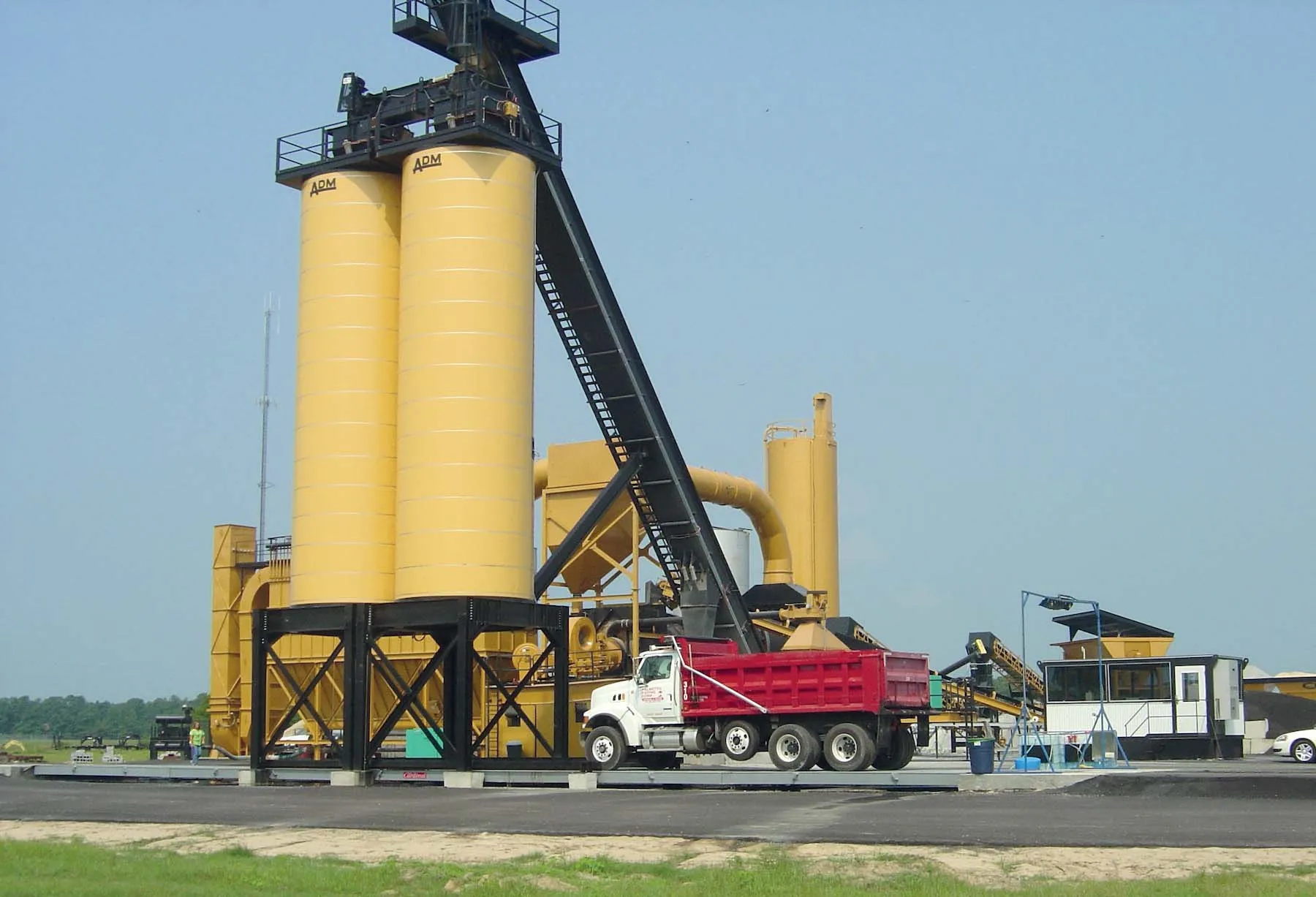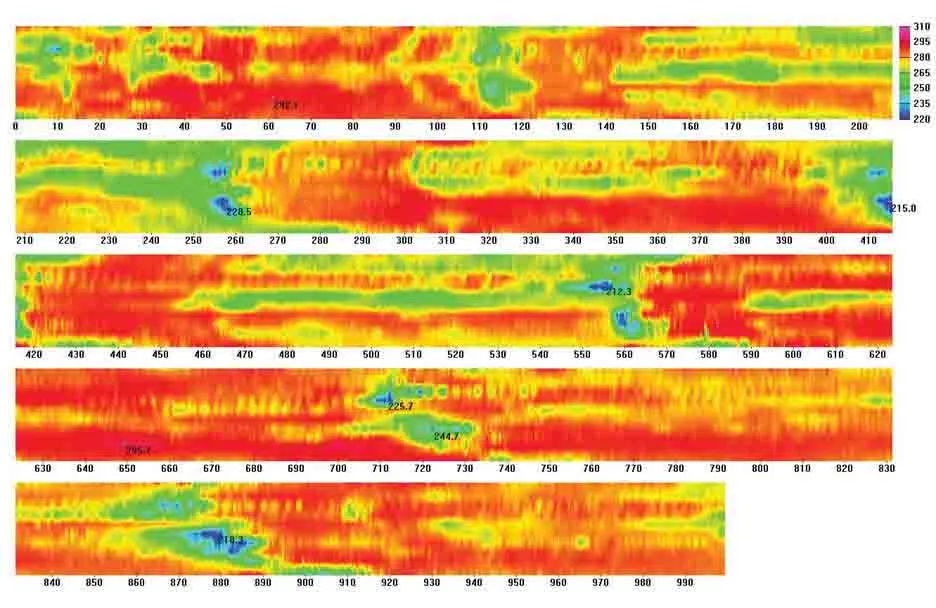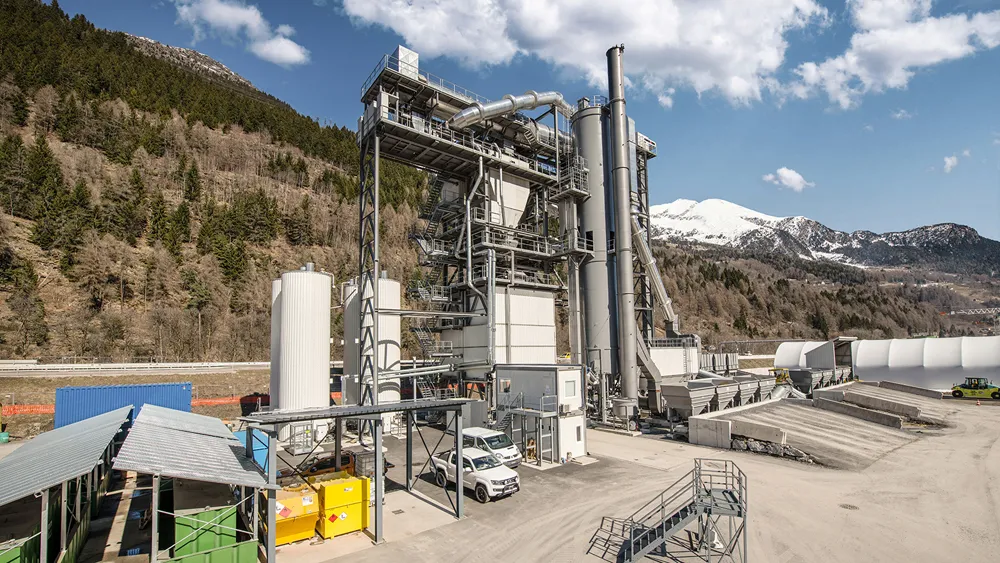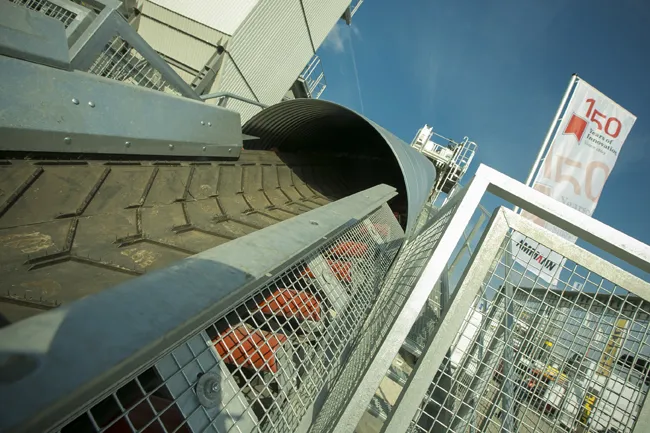US firm Asphalt Drum Mixers is widening its range of stationary and self-erect asphalt storage silos. These units are designed to be versatile and can be used with the firm’s own asphalt plants as well as those from competitors.
The firm says that the design of its stationary and self-erect silos allows them to be used in various asphalt plant configurations. The company also offers an array of capacity options to accommodate the output of any operation.
The capacity of ADM’s self-erect silos ranges
August 18, 2015
Read time: 2 mins

US firm 1253 Asphalt Drum Mixers is widening its range of stationary and self-erect asphalt storage silos. These units are designed to be versatile and can be used with the firm’s own asphalt plants as well as those from competitors.
The firm says that the design of its stationary and self-erect silos allows them to be used in various asphalt plant configurations. The company also offers an array of capacity options to accommodate the output of any operation.
The capacity of ADM’s self-erect silos ranges from 27-68tonnes, and stationary silo models hold from 90-271tonnes of asphalt mix. All models are equipped with alarms to alert operators when asphalt levels are high, and fibreglass blanket insulation to provide heat retention, while optional oil or electric heating systems are also available.
Each silo features a heavy-duty steel design with the barrels tapering to a 762mm diameter discharge opening where a pneumatic batcher with a dual clamshell gate reduces product segregation and coning.
The self-erect silos can be transported on a gooseneck trailer with a fifth-wheel kingpin hitch. Large units feature a trailer with a quad-axle and air-ride suspension. Small and midsized trailers use leaf spring suspension and either a tandem or tri-axle. The firm says that the design allows the silo and conveyor to be raised upright quickly and easily.
Safety features include a skid-resistant platform and guardrails with kickplates. All silos can be equipped with alerts to warn of low material levels and LC1000 loadout computers, which work in conjunction with truck scales, weight batchers or reverse weigh systems. The LC1000 allows operators to access truck loading data, job files and silo inventory data.
The firm says that the design of its stationary and self-erect silos allows them to be used in various asphalt plant configurations. The company also offers an array of capacity options to accommodate the output of any operation.
The capacity of ADM’s self-erect silos ranges from 27-68tonnes, and stationary silo models hold from 90-271tonnes of asphalt mix. All models are equipped with alarms to alert operators when asphalt levels are high, and fibreglass blanket insulation to provide heat retention, while optional oil or electric heating systems are also available.
Each silo features a heavy-duty steel design with the barrels tapering to a 762mm diameter discharge opening where a pneumatic batcher with a dual clamshell gate reduces product segregation and coning.
The self-erect silos can be transported on a gooseneck trailer with a fifth-wheel kingpin hitch. Large units feature a trailer with a quad-axle and air-ride suspension. Small and midsized trailers use leaf spring suspension and either a tandem or tri-axle. The firm says that the design allows the silo and conveyor to be raised upright quickly and easily.
Safety features include a skid-resistant platform and guardrails with kickplates. All silos can be equipped with alerts to warn of low material levels and LC1000 loadout computers, which work in conjunction with truck scales, weight batchers or reverse weigh systems. The LC1000 allows operators to access truck loading data, job files and silo inventory data.









